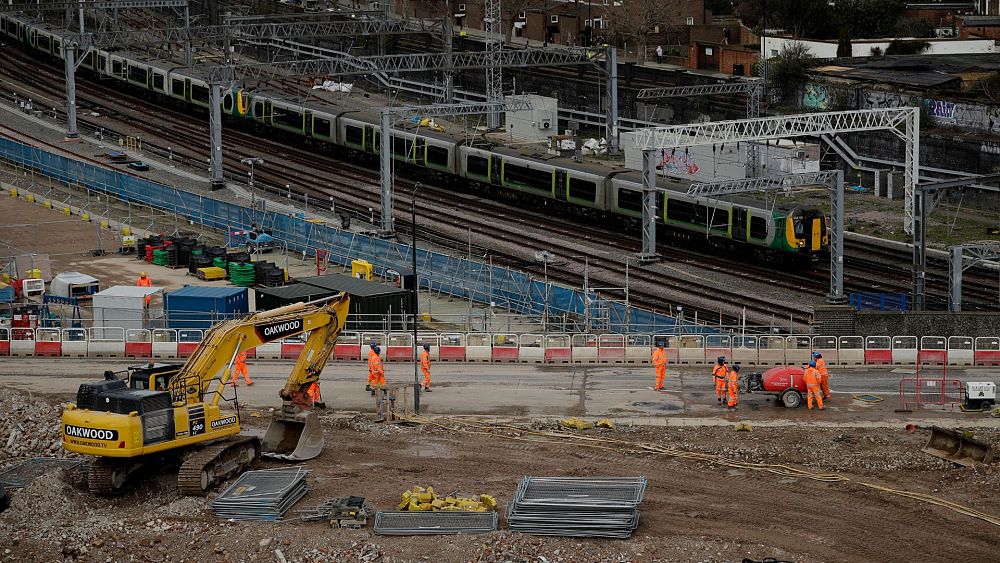The UK might cut its planned HS2 high-speed rail line short as costs triple.
The British government on confirmed Sunday it may scrap a big chunk of the overdue and over-budget rail line.
Once touted as a way to attract jobs and investment to northern England, the line could now end in Birmingham - 100 miles from London - rather than further north in Manchester.
British media reported that an announcement is expected this week.
Why might HS2 be cut short?
The Conservative government insists no final decision has been made about the embattled High Speed 2 project.
But Cabinet minister Grant Shapps said it was “proper and responsible” to reconsider a project whose costs have ballooned because of high inflation driven by the COVID-19 pandemic and the war in Ukraine.
“We’ve seen very, very high global inflation in a way that no government could have predicted,” said Shapps, a former transportation secretary who now serves as the UK's defence minister.
“It would be irresponsible to simply spend money, carry on as if nothing had changed,” he told the BBC.
The projected cost of the line, once billed as Europe’s largest infrastructure project, was estimated at £33 billion (€38bn) in 2011 and has soared to more than £100 billion (€115bn) pounds by some estimates.
What is HS2?
HS2 is the UK’s second high-speed rail line, after the HS1 route that links London and the Channel Tunnel connecting England to France.
With trains traveling at a top speed of around 400 kph, the new railway was intended to slash journey times and increase capacity between London, the central England city of Birmingham and the northern cities of Manchester and Leeds.
Though it drew opposition from environmentalists and lawmakers representing districts along the route, the project was touted as a way to strengthen the north’s creaky, overcrowded and unreliable train network. The government hailed it as a key plank in its plan to 'level up' prosperity across the country.
The north of England, which used to be Britain’s economic engine, saw industries such as coal, cotton and shipbuilding disappear in the last decades of the 20th century, as London and the south grew richer in an economy dominated by finance and services.
The government canceled the Birmingham-to-Leeds leg of HS2 in 2021 but kept the plan to lay tracks on the 260 km between London and Manchester.
Former Conservative Prime Minister Boris Johnson, a longtime champion of the project, said cutting it back even further “makes no sense at all”.
“It is no wonder that Chinese universities teach the constant cancellation of UK infrastructure as an example of what is wrong with democracy,” Johnson said.
North treated as 'second-class citizens when it comes to transport'
Manchester Mayor Andy Burnham said people in northern England were “always treated as second-class citizens when it comes to transport.”
“If they leave a situation where the southern half of the country is connected by modern high-speed lines, and the north of England is left with Victorian infrastructure, that is a recipe for the north-south divide to become a north-south chasm over the rest of this century,” Burnham, a member of the opposition Labour Party, told British TV channel Sky News.
The government has also delayed work on bringing the line all the way to Euston station in central London. When it opens, some time between 2029 and 2033, trains will start and finish at Old Oak Common station in the city’s western suburbs.
London Mayor Sadiq Khan said that would create “a ridiculous situation where a ‘high speed’ journey between Birmingham and central London could take as long as the existing route, if not longer.”
“The government’s approach to HS2 risks squandering the huge economic opportunity that it presents and turning it instead into a colossal waste of public money,” Khan said in a letter to Prime Minister Rishi Sunak.


